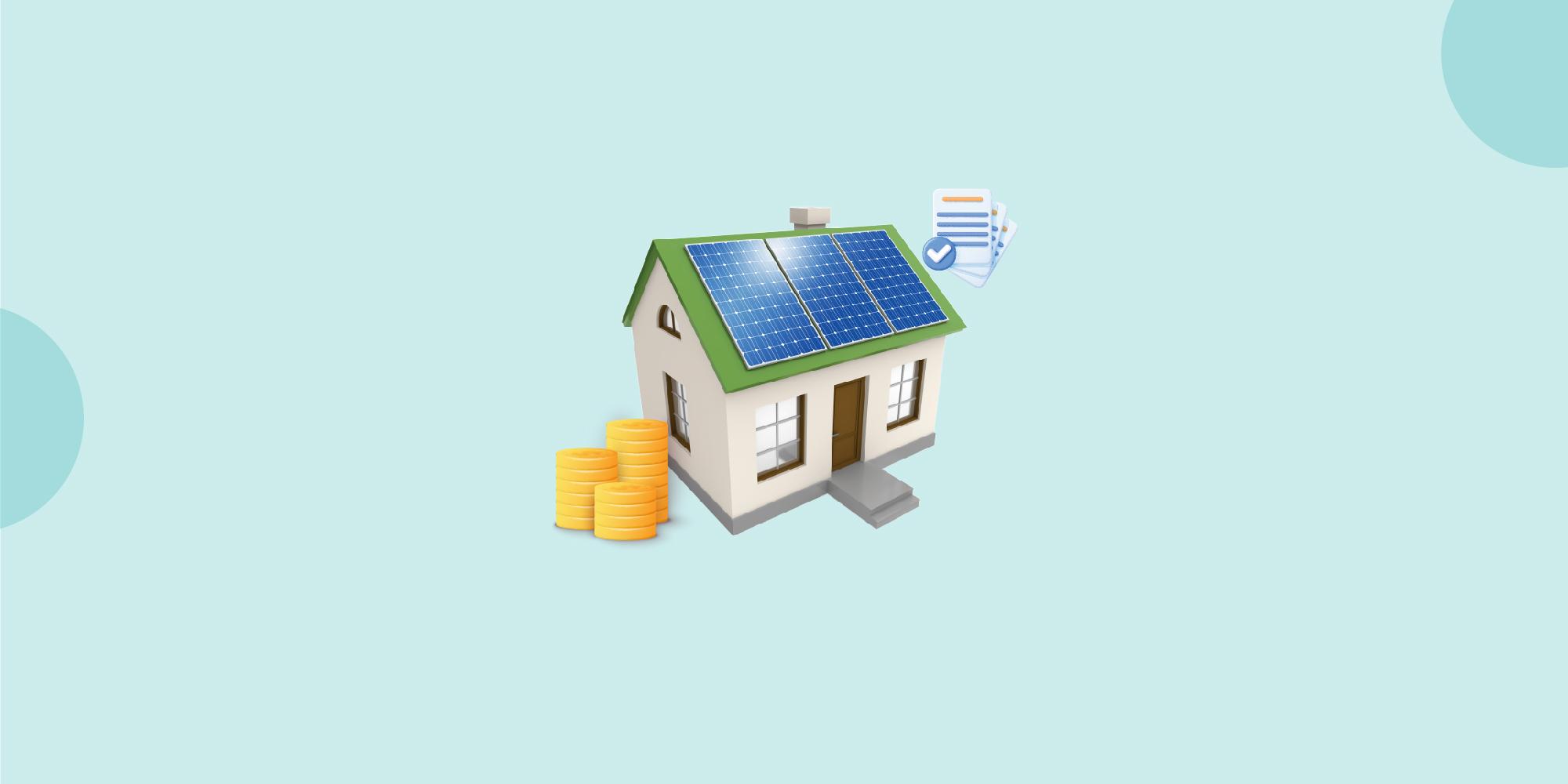- Home
- Blogs
- Solar Loan
- Solar Loan Eligibility Criteria
Solar Loan Requirements: Eligibility, Documents & More
Reviewed by: Fibe Research Team
- Updated on: 4 Sep 2025

Thinking of installing solar panels but worried about the cost? A solar panel loan in India makes it easy by letting you pay in simple EMIs, just like a home or car loan. To get approved, you’ll need to meet certain eligibility criteria and submit a few basic documents.
Here, we’ll walk you through the exact requirements, documents needed and steps to apply so you can switch to solar power without any confusion.
Table of Contents
What is a Solar Loan?
A solar loan is a financing option offered by banks and NBFCs (Non-Banking Financial Companies) to help people purchase rooftop solar systems. Instead of paying the full amount at once, you repay the loan in EMIs over a fixed tenure. This makes it one of the most accessible forms of renewable energy financing, supporting households and businesses in adopting clean power solutions.
For example, if a 3kW solar panel system costs ₹2 lakh, you don’t need to pay the full amount upfront. With a solar loan, you can pay monthly EMIs based on your chosen tenure and interest rate.
Why are Solar Loans Popular?
A solar loan offers multiple benefits, making renewable energy adoption easier and more affordable for individuals and businesses:
- Affordable Payments: Solar loans convert high installation expenses into manageable monthly EMIs, reducing financial stress while enabling faster adoption of renewable power solutions.
- Promotes Green Energy: Encourages India’s transition toward clean energy by making solar power financially accessible through clean energy loans, reducing carbon footprint, and supporting environmental sustainability.
- Saves Money: After installation, solar systems significantly reduce monthly electricity bills, offering long-term financial savings while ensuring consistent power availability.
- Available to All: Designed inclusively for salaried professionals, self-employed individuals, and businesses, ensuring equal access to renewable energy financing solutions.
Solar Loan Eligibility Criteria
The eligibility conditions may vary slightly depending on the bank or lender. However, the common solar loan eligibility criteria are as follows:
- Age Limit: Applicants must be at least 22 years old, with a maximum of 62 years for salaried individuals, ensuring stable working years.
- Income Proof: Salaried applicants must submit salary slips or bank statements, while self-employed individuals provide ITRs or audited financial statements.
- Employment Type: Both salaried employees from government, PSU, or private companies, along with business owners and professionals, are eligible for loans.
- Credit Score: A minimum CIBIL score of 750 is required; a higher score ensures smoother approvals and better interest rates.
- Property Ownership: Applicants must own the property where solar panels will be installed or alternatively provide the property owner’s written consent.
Solar Loan Eligibility and Documents
Apart from meeting eligibility conditions, you also need to submit certain documents. These help the lender verify your identity, income, and property details. The common documents required are:
- Identity Proof: Applicants must provide valid identification, such as Aadhaar, PAN, Passport, or Voter ID, to confirm personal details accurately.
- Address Proof: Utility bills, Aadhaar, Passport, or a rental agreement can serve as valid proof of the applicant’s residential address.
- Income Proof (Salaried): Submit three to 6 months’ salary slips, Form 16, or recent bank statements to verify income consistency.
- Income Proof (Self-employed): Provide the last two to three years’ ITR, GST registration details, and audited financial statements for eligibility assessment.
- Property Documents: Ownership documents, electricity bills, or lease agreement copies are required to establish property authenticity and confirm the installation site.
- Photographs: Recent passport-sized photographs of the applicant must be submitted to complete verification and ensure proper identification for records.
Solar Loan Scheme Eligibility for Different Applicants
Different categories of individuals and businesses can apply for solar loans, but the eligibility criteria vary under the rooftop solar loan scheme, as shown below:
| Category | Age Requirement | Income Proof / Stability | Documents Required | Other Conditions |
|---|---|---|---|---|
| Salaried Individuals | 21–60 years | Must have stable employment with regular income | Salary slips, PAN, Aadhaar, electricity bill of property | Good credit history required |
| Self-Employed Individuals | 21–65 years | Proof of steady business income via ITRs or GST | ITR (last 2–3 years), GST filings, property proof, business registration documents | Property ownership proof mandatory |
| Small Businesses & Shops | No fixed age limit | Business should show consistent revenue | Business registration papers, financial statements, property documents or rental consent | Eligible for commercial solar loans only |
Benefits of Meeting Solar Loan Eligibility Criteria
Maintaining a strong financial profile and proper documentation offers multiple benefits when applying for a solar loan, giving you access to better solar financing options, lower interest rates, and faster approvals. Also includes:
- Quick Loan Sanction: Applicants meeting eligibility criteria with proper documents often receive loan approvals within just a few working days.
- Better Interest Rates: Individuals maintaining a high credit score and stable finances are rewarded with significantly lower solar loan interest rates on sanctioned loans.
- Higher Loan Amounts: Banks and lenders confidently approve larger loan amounts when applicants demonstrate strong income, ownership, and overall financial stability.
- Smooth Process: Submitting accurate documents and fulfilling eligibility requirements ensures a hassle-free, smooth loan application experience without unnecessary follow-ups.
Switching to solar is a smart way to cut electricity costs and go green. With Fibe Solar Financing, you can get up to 100% of the project cost at easy EMIs. It helps in avoiding high upfront expenses and offers fully digital application process. Plus, India’s green energy subsidy makes solar installation even more affordable.
FAQ on Solar Loan Eligibility Criteria
Solar loan eligibility criteria in india?
In India, most solar loans require applicants to be ages 22-62 with a steady salary, business, or professional revenue. It is crucial that the credit score is decent (usually 750 or more) to get the approval quicker. Banks will also demand that you own the property or guarantee a binding agreement where the solar system will be installed.
